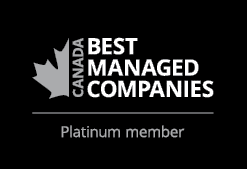Tackling chronic lifestyle diseases such as type 2 diabetes, heart disease, and obesity through workplace exercise and nutrition program is becoming more commonplace. Eating a healthy, well-balanced diet and getting the recommended 150 minutes of moderate to vigorous activity weekly play a key role in reducing the risks of chronic disease, but there is another key ingredient—sleep! This essential pillar of health is often overlooked, but it is crucial for overall health and productivity.
Adults require seven to eight hours of sleep every day on average. Yet, the 2016 Canadian Sleep Review found that almost three-quarters of Canadians get less than seven hours of sleep nightly. It seems that we remember to recharge our smartphones and other electronic devices daily, but often forget that our bodies also need a daily boost.
Sleep aids in healing, allowing the body’s cells to repair. Research has shown that chronic sleep deprivation—defined as anything less than six hours per night— is linked to an increased risk of type 2 diabetes, obesity, heart disease, memory loss, and mental illness. But aside from these inherent health risks, sleep deprivation can also have a significant detrimental effect on your company’s bottom line.
The lost productivity that results from fatigued employees costs Canadian employers an estimated $330 million annually, according to the 2016 sleep review. Statistics also suggest that one in four workers call in sick just to catch up on sleep and that the average employee loses eleven days of productivity annually due to insomnia. After two weeks at less than six hours of sleep per night, an employee’s performance is equivalent to someone who has gone 48 hours with no sleep. Poor quality sleep leads to reduced creativity and problem-solving, as well as increased errors, conflicts, workplace accidents, and injuries.
Shy of tucking your employees in at night, what can you do as an employer to encourage healthy sleep hygiene?
- The blue light emitted from electronic devices has been found to impact melatonin production and interrupt the body’s natural sleep patterns. Encourage your employees to “power down” at night and implement workplace policies that include an email “blackout” period in the evenings.
- Consider providing sleep hygiene education and sleep-disorder screening clinics.
- Allow for flex time where possible to give employees the ability to better manage work, family and personal obligations.
- Create bright workspaces that allow sufficient natural light.
- Install a nap room. Studies show that short naps can boost creativity, enhance productivity, and increase alertness by up to 30 per cent.
- Hire temporary help during peak work periods to allow for a regular work schedule and to avoid overtime burnout.
- Implement structured fatigue management policies, especially for safety-sensitive roles.
- Offer employees the opportunity to recharge for 20 minutes in a tranquil nap pod instead of the regular coffee or calorie-filled latte to combat the mid-afternoon energy slump.
With a little bit of creativity and encouragement, you can have a positive impact on the health and well-being of your employees as well as on your organization’s bottom line—and that should ensure a good night’s rest for everyone.

-min.jpg?width=400&name=MFA_Blog%20(1)-min.jpg)
-min.jpg?width=400&name=AJ%20Feltis%20(1)-min.jpg)
-min.jpg?width=400&name=Healthy_Workplace_Blog%20(1)-min.jpg)

